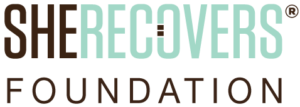Anti-Racist Agitator Creating Brave spaces to get Comfortable with the uncomfortable
HEALING RECOVERY SPACES – AN ANTI-RACISM TRAINING
Racism is a recovery threatening issue and a form of trauma. It can no longer go untreated.
In order to provide comprehensive and trauma-responsive addiction treatment solutions, and to truly hold culturally competent recovery spaces – as organizations and as individuals – we must be willing to embrace inclusivity and anti-racism work.
Kenneth Ponds defines racial trauma as:
- The physiological, psychological and emotional damage caused by stressors or racial harassment or discrimination.
- Includes negative, sudden and uncontrollable experiences, crisis or ongoing physical or psychological threat
SAMHSA calls for cultural competence. All it takes to answer the call is a willingness to listen, learn, and evolve
How does racism threaten recovery?
Racism is built on a foundation of prejudice, oppression, social and institutional power, advantage, historical racist practices, and white supremacy. It is expressed in systems, structures, institutions, and individuals. Racism is all encompassing – but so is recovery. Together, we can break down the foundations, intergenerational traumas, and expressions that fuel racism – to build a better tomorrow for all recovering individuals.
As a trauma-responsive organization or individual you must address the impacts of racial trauma and be willing to implement anti-racist practices in your recovery spaces.
To create trauma informed and safe environments for your clients, it’s critical that you provide trainings for clinicians, staff and volunteers to insure their cultural competencies.
In this training we focus on:
- Racism – The roots of racism and its impact on North American culture.
- Racial Trauma – How racial discrimination is associated with psychological distress.
- Microaggressions – Understanding the negative and subtle slights and insults.
- White Supremacy – How white superiority maintains America’s racism equilibrium.
- Allyship – What is possible when those with privilege show up for the marginalized?
More about training:
It all starts with understanding that everyone brings different backgrounds and lived experiences to conversations about race. As challenging as that may be I know your goal is to create a culture and environment that is trauma-informed and safe for all your clients.
When you make anti-racism work a priority you’re making a clear statement that your organization stands on the importance of inclusive cultures and cultural competencies. Participants leave this training feeling challenged yes, but equally motivated to create real change.
Supported by:
 The Healing Recovery Spaces – An Anti-Racism Training program was developed in collaboration with and continues to be supported by the SHE RECOVERS® Foundation.
The Healing Recovery Spaces – An Anti-Racism Training program was developed in collaboration with and continues to be supported by the SHE RECOVERS® Foundation.
Please visit www.sherecovers.org to learn more about this lifeline organization that connects, supports and empowers women in or seeking recovery.
Why I created this training:
Our world has reached a boiling point. We’re standing on the precipice of cultural chaos; a result of a festering problem ignored for far too long.
The cries of the minority have finally reached the ears of the majority and people are hungry for change. More and more we are waking up to the consequences of racism and its effects on our institutions and systems, including healthcare, and yes, including treatment and recovery spaces.
As a Black woman occupying recovery spaces it is my calling, passion, and purpose to educate and inform through my personal experience of racism. When we know better, we do better. It is time to do better – and together we can.

